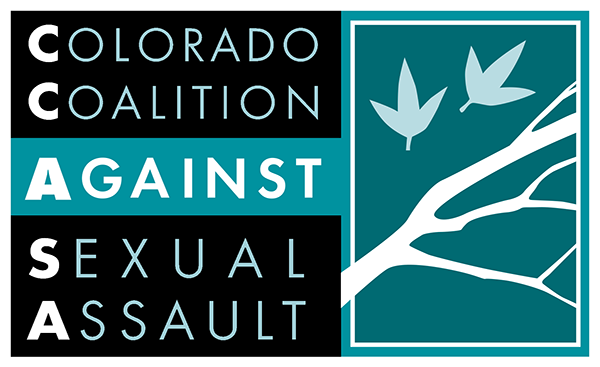Testimony submitted by Raana Simmons, CCASA Policy Director to Colorado House of Representatives, Health and Insurance Committee on Jan. 30, 2019:
Good afternoon Madam Chair and members of the committee: my name is Raana Simmons, I am the Director of Policy for the Colorado Coalition Against Sexual Assault (CCASA), and I am here today representing the Coalition and our over 100 agency and individual members across Colorado who serve survivors of sexual assault, while working to prevent this crime.
We are here today asking for your support of HB19-1032 a bill that clarifies components of existing law to ensure the sex education instruction provided in Colorado equips young people with the tools they need to lead safe, healthy lives.
Sexual violence is a serious problem that can have lasting, harmful effects on victims and their family, friends, and communities. People of all ages experience sexual violence. According to the Centers for Disease Control, National Intimate Partner and Sexual Violence Survey: 42% of female victims experience their first rape before the age of 18 and more than one-quarter of male victims experience their first rape when they were 10 years of age or younger. The study also found 1 in 5 girls, ages 14-18, had been kissed or touched without her consent. Of this same demographic, 98% of the girls did not report their assaults to the police or school authorities.
Sexual assault can cause intense feelings of humiliation, denial, shame and self-doubt. Victims often feel terrified of other people learning what has been done to them; they fear they will not be believed and that they will be subjected to harassment. For young people who have experienced sexual abuse, the quality of education they receive about rape and sexual assault – whether that be in school, at home, through social media or friends, etc. – can make the difference in whether or not they report the crime or seek supportive services for the trauma they’ve experienced. Those who do come forward often face intense scrutiny and are met with disbelief. It is imperative, therefore, that the education survivors receive about sexual health be medically accurate and avoid shame-based and stigmatizing language. HB-1032 achieves this ideal by clarifying educational content requirements in law, thereby supporting a survivor’s ability to come forward and seek help.
It is not enough, however, to teach young people that rape is bad – they already know that. Instead, we must pivot our focus to help young people cultivate their own understanding of how to effectively and clearly communicate their boundaries and expectations in all of their relationships. HB19-1032 creates the opportunity for teaching young people how to draw their own personal and emotional boundaries and have respect for others to do the same. In this way, HB19-1032 centers comprehensive sexual health education as the cornerstone to actually addressing and preventing sexual violence.
Since the elevation of the #MeToo movement in November 2017, CCASA’s members – those folks who provide direct services to survivors of sexual violence in Colorado – have seen an increased demand for prevention education programs, which unfortunately, are often beyond a providers’ capacity. According to the National Alliance to End Sexual Violence 2017 Rape Crisis Center Funding Survey, almost 40% of all community-based victim advocacy programs have a waiting list of a month or more to provide prevention programming to schools in their respective communities.
The goal of sexual violence prevention is simple—to stop it from happening in the first place. If we want any hope for adequately addressing the epidemic of sexual violence in our state, we must start by creating and supporting spaces where young people can talk about sexual health more often, and earlier on. In this critical, watershed #MeToo moment, now is the opportune time to support comprehensive sexual health education in Colorado.
It is for these reasons CCASA is urging a “yes” vote from the committee on HB-1032. Thank you for the opportunity to testify in support of this bill, I am available to answer any questions the committee may have.
###

